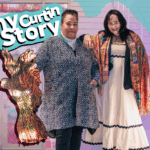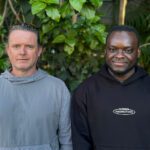Five tips from Curtin students on how they are working towards a zero-waste lifestyle.
Did you know that Australians create 67 million tonnes of waste each year? Frankly, that’s a lot, and it has a huge impact on climate change and human health.
It also means that working towards a zero-waste world is a key part of conserving our future on Earth. To do that we need to drastically change our attitude towards product consumption, phase out the need for landfill and conserve our limited natural resources.
On a smaller scale, that might look like using biodegradable product packaging that doesn’t go straight to landfill, moving away from fast fashion and limiting food waste. On a larger scale, it means moving towards creating a circular economy.
When we say zero-waste and circular economy, we’re talking about extending the lifecycle of products made and purchased. And while it may seem too big to effect change alone, we can start small and implement zero-waste ways of living throughout our daily life.
If you’re not sure where to start, we asked current Curtin students around campus to give their tips on moving towards a zero-waste lifestyle.
Here’s five tips from Curtin students on how to work towards zero-waste
- “I work in a café, so we have a lot of food wastage and tend to chuck out a lot of food that we can’t sell to customers. But we have a work colleague that has chooks, so we chuck all our food in the compost, give her the compost and we get eggs from her in return! So [it’s a] super great way to be more sustainable, it’s much cheaper and we also don’t waste all our food.’’ – Rachel Tebbit, Bachelor of Science (Nutrition and Food Science).
- “Where possible, buy products that don’t use plastic. For example, my family and I use shampoo and condition bars instead of buying the liquids that come in plastic containers. Similarly, deodorants can be bought in cardboard tubes instead plastic. Not only are most of these products better for your skin, but they are just a small change you can make in your life that add up over time to make a big difference. There are many online stores that stock everything from hair products to scrubbing brushes, bin liners to toothpaste. Find your favourite and bulk-buy from them in one go to reduce the carbon emissions used to transport the goods to your house. Stock up and enjoy!” – Abbey Carson, Bachelor of Arts (Professional Writing and Publishing)
- “Just reduce, reuse, recycle. I tend to reuse any plastic bottles I have because I need water on the disc golf course. I have plenty of plastic bottles that I just don’t chuck out because that’s horrible for the environment” – Jake Kaufmann, Bachelor of Science (Chemistry)
- “Implementing is one thing but education on how to use the different recycling bins and plastics – you’ve got to educate people on how to use them properly.” – Brayden Gray, Bachelor of Medicine, Bachelor of Surgery.
- “Op shopping is a great way to make progress towards zero waste as it not only reduces your own personal waste, but removes other clothing waste in the process. Shopping for clothes sustainably to give them a second life, or upcycling materials reduces your fashion and material waste and keeps your overconsumption to a minimum.” – Mikaela Zuiderduyn, Bachelor of Arts (Screen Arts), Bachelor of Commerce (Marketing).
We hope you liked these tips from other Curtin students and can implement them into your daily life. If you have your own tips that you would like to share, we’d love to hear from you!
This article is the fourth part of our Sustainability Month series, which highlights sustainability initiatives in and around Perth campus in the lead-up to the Sustainability Challenge intensive taking place at the end of June. Check out our other articles so far:



